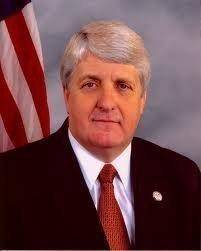Noelle Straub, E&E reporter
Key lawmakers say they are likely to package numerous wilderness, parks and other natural resources bills into one broad package with the goal of enacting it by the end of this year.
House Natural Resources Chairman Nick Rahall (D-W.Va.) said his panel will continue to look at individual pieces of legislation and move them expeditiously to the floor and through the House. But he added that in the end he expects to craft an omnibus public lands bill this year, just as Congress did last year.
“There are wilderness proposals that … we will be examining, national parks proposals,” Rahall said. “So our agenda is full.”
Rahall predicted that it will be a “good year” for wilderness proposals. “Where we can reach agreement among all the stakeholders we’ll continue to pursue those wilderness designations,” he said.
Senate Energy and Natural Resources Chairman Jeff Bingaman (D-N.M.) likewise said there are numerous public lands bills in his committee that he will try to move. “I think we can do some significant things again this year,” he said.
Bingaman said he could not predict how the bills would wind up being considered on the Senate floor but added that Democrats crafted an omnibus bill last year “because of all the objections that were raised on the Republican side to going with the bills in a different way.”
“Frankly, these public land bills wind up being about half Republican bills, half Democratic bills, and the only way we’ve been successful with passing them is to deal with them in a fairly nonpartisan way, and I think that’s most likely going to be the case in this Congress, too,” Bingaman said. “If we’re successful it will be because we’ve worked with both sides of the political aisle to get a package of bills that people will support.”
Rep. RaГєl Grijalva (D-Ariz.), who chairs the House National Parks, Forests and Public Lands Subcommittee, said his panel will continue to work on wilderness designations this year, calling them “important and critical.”
But he predicted it will be a “tough” year for wilderness bills because opponents will turn to economic arguments and claim the measures would reduce jobs.
“We’re going to hear that over and over again in terms of, is it the economy or is it preservation,” Grijalva said. “If we’re going to be faced with that choice, I think we need to sharpen our arguments on that and be prepared for that fight. Because a wilderness designation is not going to be attacked on anything other than ‘you’re preventing extraction from it, which we need for the economy,’ and that’s going to be our fight.”
He added that there will be more pressure to get wilderness measures passed before the November elections.
“I think part of what we’re having problems with is, this is a constituency, primarily a Democratic constituency … that supports these efforts,” Grijalva said. “We need to do some things so that we energize the constituency so they’re there with us when election time comes. I think it would be politically, not just from the policy side, but politically very stupid of us not to move aggressively on some public lands issues.”
Last March, President Obama signed one of the most sweeping pieces of conservation and public land management legislation in years. The 2 million acres of wilderness alone in the omnibus bill were nearly as much as that designated over the past eight years combined.
The measure also established three new national park units, a new national monument, three new national conservation areas, more than 1,000 miles of national wild and scenic rivers, and four new national trails. It enlarged the boundaries of more than a dozen existing national park units and establishes 10 new national heritage areas. Other provisions addressed water resource and supply issues and launched programs to study the effects of climate change on natural resources.
Congressional committees considered some of the bills as early as 2007, but Sen. Tom Coburn (R-Okla.) used procedural methods to slow the measures over the course of a year, saying they would raise government spending and limit energy development on public lands.

